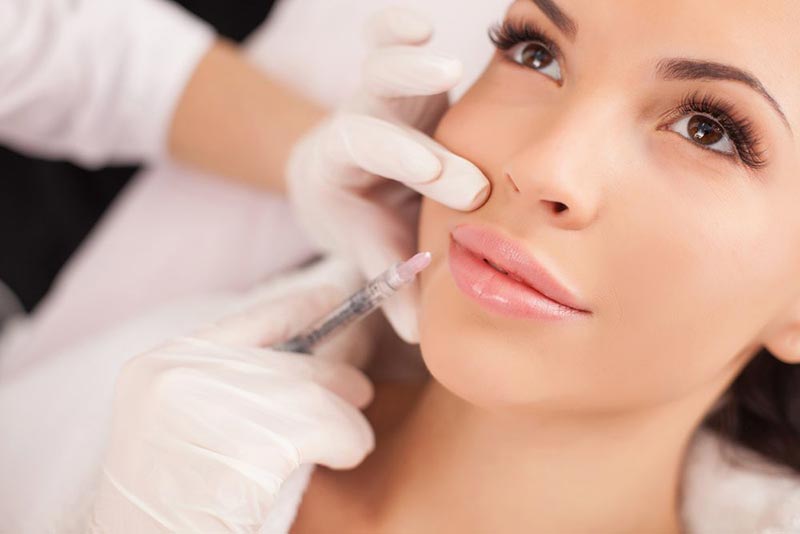TMJ Disorder Symptoms
 Also known as TMD, TMJ disorders refer to improper alignment and function of the jaw joint. These can be painful and inconvenient. Thankfully the team at North Pier Dental Associates can help. We offer a host of minimally invasive procedures that improve joint function, including targeted BOTOX® injections for TMJ disorders.
Also known as TMD, TMJ disorders refer to improper alignment and function of the jaw joint. These can be painful and inconvenient. Thankfully the team at North Pier Dental Associates can help. We offer a host of minimally invasive procedures that improve joint function, including targeted BOTOX® injections for TMJ disorders.
Of course, the first step to treating a problem is identifying what the problem is. Below are a few telltale symptoms of a TMJ disorder.
Common TMJ Disorder Symptoms
Clicking and Popping of the Jaw
The most well-known sign of TMJ disorders is a clicking or popping sound made by your jaw. People often hear this noise while yawning or when they open their mouth wide. It can also occur when someone is biting or chewing. The sound of the pop can be alarming and quite audible.
Jaw Pain
Since a TMJ disorder is caused by poor function of the jaw joint, it’s no surprise that the condition is often accompanied by some amount of jaw pain. The soreness may accompany a pop or click of the jaw, or it may be noticed while biting and chewing. General soreness of the jaw may also be an issue.
Crunching or Grinding Sensation of the Jaw
When you’re eating or moving your jaw in a certain way, you may notice a strange grinding or crunching sensation as the joint moves. This is another potential sign of a TMJ disorder. A jaw that functions properly shouldn’t necessarily be producing these sensations from normal, everyday activities.
Stiffness in the Jaw
Sometimes when try to laugh or yawn, you may notice your jaw can only move so far. Stiffness in movement or restrictions in the movement of your jaw are a sure sign that there is an issue.
Lockjaw
Worse than jaw stiffness, it’s possible for you to suffer from lockjaw if you have a TMJ disorder. This mean your jaw will freeze in place at a certain position. This can be annoying and also a little scary.
Headaches or Earaches
When the jaw isn’t functioning right, it can cause pain to radiate around and out from the joint. It’s not uncommon for people with a TMJ disorder to also complain about earaches. Pain in the temples is also common given the way different structures of the head and face are connected.
Sore Teeth and Gums in the Morning
Teeth grinding (bruxism) is one of the most common causes of TMJ disorders. The condition tends to leave peoples teeth and gums feeling sore or sensitive in the morning when they wake up. If you notice this in addition to the other symptoms we’ve noticed above, it’s a good idea to speak with a dentist about potential treatment options.
Getting Treatment for Your Needs
During a consultation at our practice, we can take x-rays and ask questions to learn more about your condition and what is causing it. Once the cause or causes have been determined, we will design a custom treatment plan for you.
Generally, treating a TMJ disorder will begin with minimally invasive therapies to improve jaw joint function. Jaw surgery will only be considered when less invasive procedures are deemed ineffective.
Contact North Pier Dental Associates
For more information about treating TMJ disorders and addressing jaw pain, be sure to request an appointment at North Pier Dental Associates. Our team is here it help you achieve improved dental health and wellness.
Also Consider Reading...
More Cosmetic Dentistry Blog Posts
